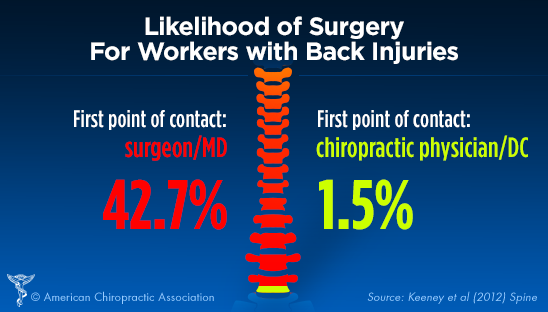Understanding Nourishment'S Role In Back Pain Management: Beneficial Foods And Foods To Avoid
Understanding Nourishment'S Role In Back Pain Management: Beneficial Foods And Foods To Avoid
Blog Article
Personnel Writer-Locklear Hardin
When it concerns handling your neck and back pain, the food options you make can considerably influence how you really feel every day. Visualize having the ability to reduce your pain just by adjusting what you eat. By recognizing the function of nutrition in back pain management and knowing which foods to include or steer clear of, you can take proactive steps towards a healthier and a lot more comfy way of life. The connection between nourishment and back health is much more profound than you might realize-- allow's check out exactly how certain foods can either soothe or intensify your back pain.
Importance of Nourishment in Back Pain
Nutrition plays a critical role in handling neck and back pain. Your diet can significantly impact inflammation levels and total discomfort levels in your back. Eating a balanced diet plan abundant in nutrients like vitamins D and K, calcium, magnesium, and omega-3 fatty acids can help in reducing inflammation and enhance bones, which are vital for back health and wellness.
Additionally, preserving mouse click the next web page through appropriate nutrition can ease tension on your back, lowering the danger of back pain.
Furthermore, particular nutrients like antioxidants discovered in vegetables and fruits can aid battle oxidative stress and promote recovery in the body, including the back muscles and spine.
On the other hand, consuming excessive quantities of refined foods, sweet drinks, and unhealthy fats can add to inflammation and weight gain, intensifying pain in the back.
Foods to Eat for Back Wellness
To support a healthy back, incorporating nutrient-rich foods into your daily meals is key. Consisting of foods high in antioxidants like berries, spinach, and kale can help reduce swelling in your back, relieving discomfort and discomfort. Omega-3 fatty acids found in fatty fish such as salmon and mackerel have anti-inflammatory residential or commercial properties that can benefit your back wellness.
In addition, eating nuts and seeds like almonds, walnuts, and chia seeds provides essential nutrients like magnesium and vitamin E, which support muscular tissue feature and minimize oxidative tension. Including lean healthy proteins such as poultry, turkey, and tofu can aid in muscle repair and upkeep, promoting a strong back.
Don't neglect to include dairy or fortified plant-based alternatives for calcium to support bone health. Last but not least, moisturize with lots of water to maintain your back discs moistened and operating optimally. By consisting of these nutrient-dense foods in your diet plan, you can nourish your back and support general spine wellness.
Foods to Avoid for Pain In The Back
Go with avoiding processed foods high in added sugars and trans fats when seeking relief from pain in the back. try this web-site of foods can add to swelling in the body, which may worsen pain in the back. Say no to sugary treats like candy, pastries, and sugary beverages, as well as junk food things like hamburgers, fries, and fried poultry that are often loaded with trans fats.
Additionally, avoid foods having high degrees of refined carbs, such as white bread, pasta, and breads, as they can spike blood sugar level levels and possibly intensify inflammation in the body.
It's additionally important to restrict your intake of foods high in saturated fats, like red meat and full-fat milk items, as they can contribute to inflammation. Processed foods like delicatessens meats, chips, and packaged snacks are often high in hydrogenated fats and ought to be consumed in small amounts.
Conclusion
In conclusion, taking note of your diet plan and making clever food options can have a significant impact on managing pain in the back. By including nutrient-rich foods like berries, fatty fish, nuts, and lean healthy proteins, and staying clear of processed and sweet items, you can help in reducing swelling and support in general back health and wellness. Remember, what you eat plays a vital function in exactly how you feel, so ensure to prioritize your nourishment for a much healthier back.
